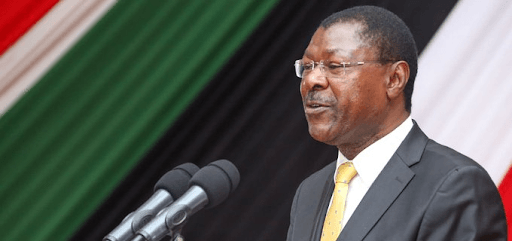My first lesson that things had changed under President Mwai Kibaki took place in early 2003. I was part of a group of press people who had gone to State House to cover a function there.
Unlike his predecessor Daniel arap Moi who usually made his pronouncements at public rallies, the occasional dispatches to newsrooms or via the Kenya Broadcasting Corporation, Kibaki invited us to his official residence.
After the event, I was to be the carrier of bad news to the General Service Unit (GSU) contingent guarding the main entrance to State House. As we drove out, the paramilitary men asked us to share with them what we had been given.
“Things have changed here,” I breezily told the disappointed cops as our driver eased the car out of the House on the Hill.
On the very rare occasions that Moi invited the press – or any other visitor for that matter – to State House his legendary generosity would play out in full colour. There would be tables laden with an assortment of food and beverages. For the political class, the ubiquitous ‘envelope’ would be passed on.
There were many times when snippets of information would seep through of fisticuffs ensuing over the envelopes after the leader of a delegation short-changed his or her crew on distributing the proceeds from the 'famous envelope'.
As the leader of the opposition, Kibaki never got tired of ranting at such ‘gifts’, which he said were fuelling corruption. When he finally took the hot seat, Kibaki did away with such delegations altogether, leave alone the envelopes.
It was therefore ironic that some of Kibaki’s men would be accused of engaging in high corruption. There was never evidence, of course, but anecdotal evidence abounded.
Before Kibaki took over some of his friends’ businesses, especially those in the hospitality industry, were facing hard times.
Hotels associated with such people were in very bad shape, just to cite one example. It is said that in fighting Kibaki, those around Moi starved such hotels off lucrative government contracts to host events and delegates.
It was nearly a year into Kibaki’s presidency that such hotels got a new lease of life and threadbare carpets were replaced with the latest in the market. Kibaki’s anti-corruption czar John Githongo captured some of these juicy stories in his book ‘It’s Our Turn to Eat - The Story of a Kenyan Whistleblower".
In his characteristic laid-back – his detractors call it lazy – approach to things, Kibaki gave his ministers free rein to run the show. Although it cut back bureaucratic red tape, this method of leadership ended up creating some tin gods who did whatever they pleased.
One major drawback was that there were some in Kibaki’s administration who saw Moi - and by extension all members of his Kalenjin community - as enemies who had to be vanquished.
Arbitrary sackings became the order of the day as some of Kibaki’s ministers carried the war of attrition to high-ranking Kalenjin civil servants’ doorsteps. Careers were ruined and some innocent men and women were forced to pay for sins they never committed.
Head of Civil Service under Moi, Sally Kosgey, said as much in an interview with a local newspaper early this year.
Kosgey was retained by Kibaki when Narc took over but was to learn of her sacking from a journalist who called her to know of her future plans.
“I was still working past the normal working hours. I had spent the past one month assisting the newly elected Narc coalition to set up government,” she says with a wry smile.
Before she could finish responding to the reporter, Sally said, Ambassador Francis Muthaura and James Ongwae, now the Kisii county governor and who was then serving as the Director of Personnel Management, entered her office.
“When Muthaura informed me that he had been appointed to replace me with immediate effect, we burst out laughing,” she recalled, adding, “The manner of my sacking was meant to humiliate me.”
Away from such sideshows, it cannot be taken from Kibaki that the economy grew in leaps and bounds during his time. With the ‘stingy’ Daudi Mwiraria as his Finance minister, Kibaki embraced sound economic policies that saw the shilling find its way into the ordinary people’s pockets.
His friend-turned-nemesis-turned-friend-again Raila Odinga also came in handy in another of Kibaki’s pet projects – massive investment in infrastructure. Under Moi, the politically correct had grabbed road reserves and hindered any important construction work.
However, Raila living to his moniker of ‘Tinga’ (tractor) led a contentious reclamation of such lands even as he was facing a barrage of criticisms that he was destroying people’s businesses and livelihoods. Seems it never occurred to those opposed to the demolitions that the structures were built on stolen land in the first place. As a result of this, Kenyans are now enjoying some of the best road networks on the African continent.
On the downside, one habit Kibaki had, was of not keeping time. For many an editor, you could never plan on running a Kibaki story because the man was somehow averse to timekeeping. This was a marked contrast with his predecessor Moi.
German philosopher Immanuel Kant was said to be such a stickler for regular regimes that the timekeeper at the local town clock used to set the clock according to Kant’s schedule. The same could be said about Moi.
Edited by A.N
“WATCH: The latest videos from the Star”










